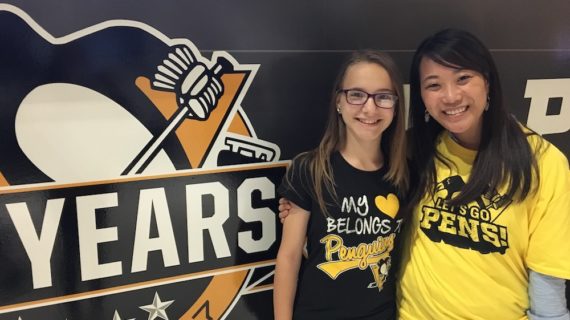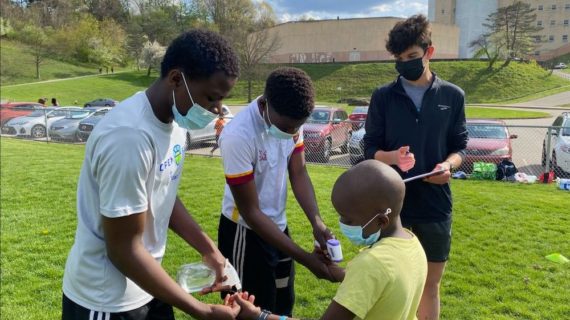
What’s mentoring in Pittsburgh really like? Read our interview with Aspire mentor Jack Mackin.
Photo above of volunteer mentor Jack Mackin and his mentee used by permission.
Maybe you’ve thought about volunteering to do some mentoring in Pittsburgh, but you’re not sure what exactly that would mean. Or maybe you’ve wanted to get your child involved in a mentoring program, but you’re not sure what that would look like.
As Kidsburgh puts a spotlight on mentoring this month with help from our guest editor Bill Strickland, we wanted to give you an up-close look at what mentoring in Pittsburgh is all about. So with help from our friends at the Mentoring Partnership, we’ve asked three people who mentor through different local organizations to tell us about their experiences. Here’s what they shared:
Mentor: Jack Mackin
Organization: Aspire
Been mentoring since: 2018
What inspired you to start mentoring? Jack began volunteering through the Aspire program at Equitrans “after talking with some coworkers who were already mentors in the program. The experience they described sounded like a good way to get involved and help provide guidance for high school students in our area.”
What’s a typical day of mentoring in Pittsburgh like for you? “Mentoring has changed quite a bit since the beginning of the pandemic. There used to be more opportunity for face-to-face interaction, but now the majority of the interaction between the mentor and student is virtual. Over the past year and a half, I have met up with my student for a couple of Aspire events, but the majority of our interaction is through texts and phone calls.”
Is it complicated to fit mentoring into your life? “Being a mentor is not that difficult to fit into my current schedule. As long as the mentor and student can be flexible and mindful of each other’s availability, we can usually find time that works for both of us.”
Mentors teach, but they also learn. What’s one thing you’ve learned from a mentee? “I’ve mentored two students so far and I’ve learned that it’s more important to listen to the student rather than trying to constantly offer advice and guidance. If my student asks my opinion then I will gladly share it, but I find it’s better to let them guide the conversation.”
Do you have any mentors? “While I don’t have anyone that I would officially refer to as my mentor, there are many people in my professional life and home life that I would consider mentors. Once you establish a relationship with someone that is comfortable providing you with honest feedback and willing to listen, they seem to fill the role of mentor even if it’s not a formal mentoring program.”
Why do you think mentoring is important? “I don’t think I fully realized the importance of a mentoring program until I started being a mentor. I’ve found that regardless of the student’s background, there is always a benefit to both the student and mentor.”
What would you say to someone who is interested in volunteering to be a mentor but hasn’t tried it yet? “I would encourage anyone thinking they might be interested in mentoring to give it a try. I think most people would really enjoy the experience.”
Want to learn more about mentoring in Pittsburgh? We’re happy to share advice from longtime Pittsburgh mentor Bill Strickland, along with info on organizations that use sports for mentoring. And check out our Q&A’s with mentors Ezra Dubowitz and Malissa Seman.





